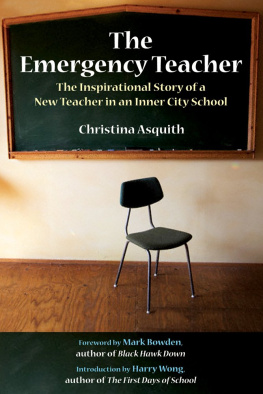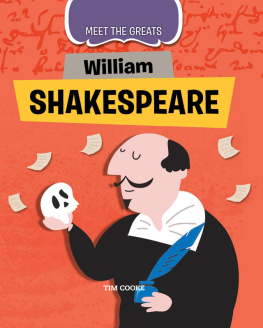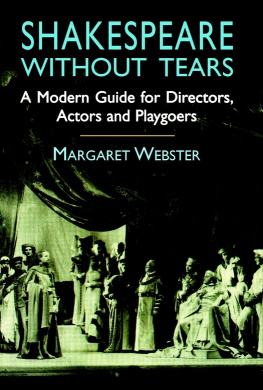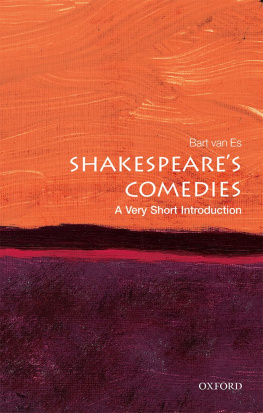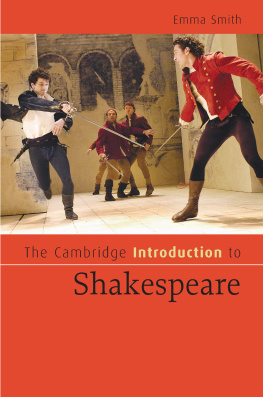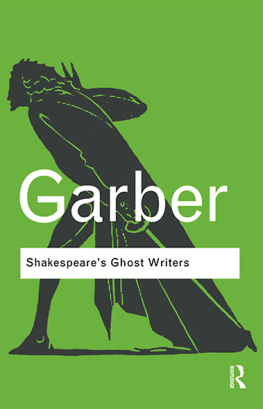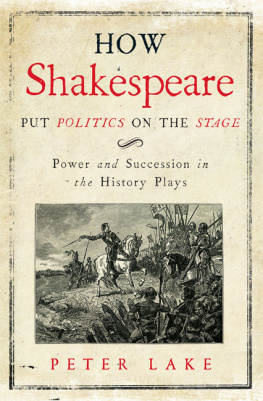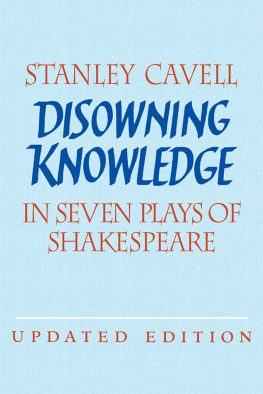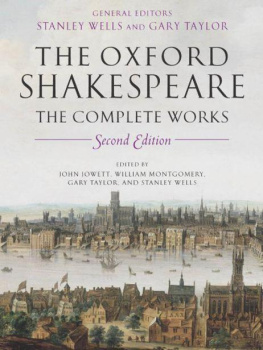Asquith - Shadowplay The Hidden Beliefs and Coded Politics of William Shakespeare
Here you can read online Asquith - Shadowplay The Hidden Beliefs and Coded Politics of William Shakespeare full text of the book (entire story) in english for free. Download pdf and epub, get meaning, cover and reviews about this ebook. City: New York, year: 2009;2018, publisher: PublicAffairs, genre: Religion. Description of the work, (preface) as well as reviews are available. Best literature library LitArk.com created for fans of good reading and offers a wide selection of genres:
Romance novel
Science fiction
Adventure
Detective
Science
History
Home and family
Prose
Art
Politics
Computer
Non-fiction
Religion
Business
Children
Humor
Choose a favorite category and find really read worthwhile books. Enjoy immersion in the world of imagination, feel the emotions of the characters or learn something new for yourself, make an fascinating discovery.

Shadowplay The Hidden Beliefs and Coded Politics of William Shakespeare: summary, description and annotation
We offer to read an annotation, description, summary or preface (depends on what the author of the book "Shadowplay The Hidden Beliefs and Coded Politics of William Shakespeare" wrote himself). If you haven't found the necessary information about the book — write in the comments, we will try to find it.
Asquith: author's other books
Who wrote Shadowplay The Hidden Beliefs and Coded Politics of William Shakespeare? Find out the surname, the name of the author of the book and a list of all author's works by series.
Shadowplay The Hidden Beliefs and Coded Politics of William Shakespeare — read online for free the complete book (whole text) full work
Below is the text of the book, divided by pages. System saving the place of the last page read, allows you to conveniently read the book "Shadowplay The Hidden Beliefs and Coded Politics of William Shakespeare" online for free, without having to search again every time where you left off. Put a bookmark, and you can go to the page where you finished reading at any time.
Font size:
Interval:
Bookmark:
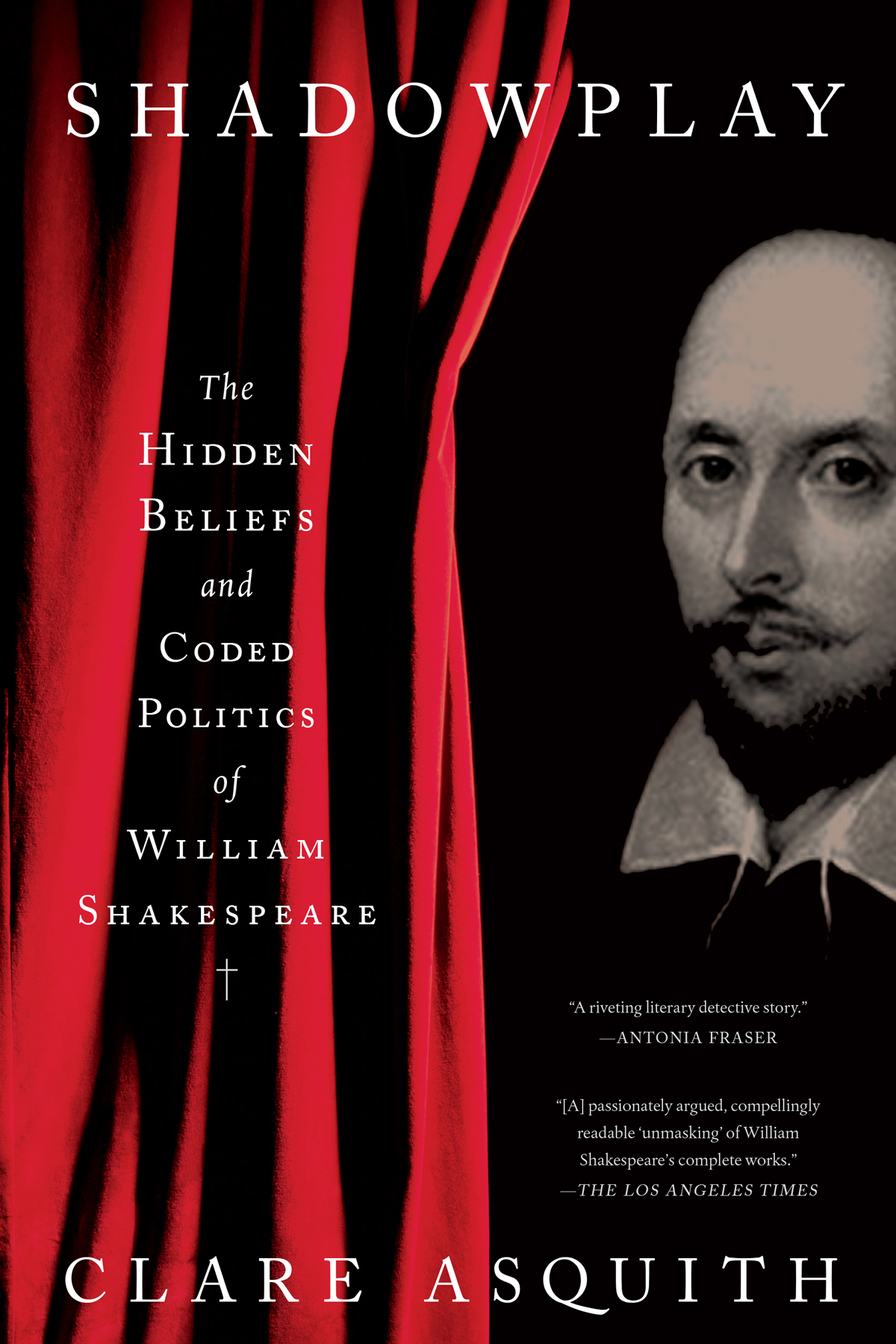
Copyright 2005 by Clare Asquith.
Hardcover edition first published in 2005 in the United States by PublicAffairs, a member of the Perseus Books Group.
All rights reserved.
Paperback edition first published in 2006 in the United States by PublicAffairs
No part of this book may be reproduced in any manner whatsoever without written permission except in the case of brief quotations embodied in critical articles and reviews. For information, address PublicAffairs, 250 West 57th Street, Suite 1321, New York, NY 10107. PublicAffairs books are available at special discounts for bulk purchases in the U.S. by corporations, institutions, and other organizations. For more information, please contact the Special Markets Department at the Perseus Books Group, 11 Cambridge Center, Cambridge, MA 02142, call (617) 252-5298, or email special.markets@perseusbooks.com.
The Library of Congress has catalogued this book as follows,
Asquith, Clare.
Shadowplay : the hidden beliefs and coded politics of William Shakespeare / Clare Asquith.1st ed.
p. cm.
Includes bibliographical references (p.) and index.
1. Shakespeare, William, 15641616Political and social views. 2. Politics and literatureGreat BritainHistory16th century. 3. Literature and historyGreat BritainHistory16th century. 4. Christianity and literatureEnglandHistory16th century. 5. Shakespeare, William, 15641616KnowledgeHistory. 6. Historical drama, EnglishHistory and criticism. 7. Political plays, EnglishHistory and criticism. 8. CatholicsEnglandHistory16th century. 9. Shakespeare, William, 15641616Religion. 10. CatholicsEnglandIntellectual Life. I. Title.
PR3017.A75 2005
822.3'3dc22 2005043160
2005043160
2005 Paperback: ISBN-13: 978-1-58648-387-6; ISBN-10: 1-58648-387-0
2018 Paperback: ISBN 978-1-5417-7429-2
E-book: ISBN 978-1-5417-7430-8
E3-20181002-JV-NF
In this heartily convincing study, Ms. Asquith makes a solid and surprising case for Shakespeare as a political dissident her assertions offer a fascinating new angle from which to explore Shakespeares ever-surprising work.
Pittsburgh Post-Gazette
One of the most astonishing and original books ever written about Shakespeare argued with profound scholarship, unfailing resource and steady, imperturbable brilliance.
The Catholic Herald
Clare Asquiths textual criticism is a marvel; eminently readable scholarship.
Sir John Keegan
Shadowplay turns a period in English history on its head as well as our most important playwrights role in the time. Thanks to Asquiths ability to decode and clarify his dissident yet patriotic message, the authors simply explained, painstaking research leads the reader down mysterious alleys with the same ease as the best thriller writer. Shadowplay is a masterpiece of precise scholarship uncovering Englands most brilliant playwrights politics, religious beliefs and dramatic fight for his countrys freedoms.
The Evening Standard
This is a book of thrilling scholarship and great daring. Any venture into Shakespearean investigation requires panache, deep affection for the man, and a delicate balance between nerve and learning. Clare Asquith has rendered all of these elegantly and has also, uniquely, kept pace with the great emotions in the works she scrutinises.
Frank Delaney, Author of Ireland: A Novel
[T]hought-provoking, judicious and valuable.
Providence Journal (Best Books of 2005)
Even if only half of Clare Asquiths argument turns out to be correct, shes written the most visceral, challenging, compelling book on Shakespeares place in history weve had for over 20 years.
John Guy, author of Tudor England
In turning each and every one of Shakespeares works into an allegory, Asquith shows great ingenuity.
Catholic Review
[A] revelatory survey of the Shakespearean corpus. altogether magnificent.
Booklist (starred review)
Asquith shines an extraordinary light on the symbolism and possible intentions of Shakespeares work. Asquiths multifaceted examination reveals as much about the history of 17th-century England as it does about the playwright and his plays, and should intrigue admirers of both.
Publishers Weekly
[Shadowplay] takes known fragmentary facts that tie Shakespeare in his youth to Roman Catholic recusancy figures and links it to an intricate, fascinating and occasionally mind-boggling world of coded words and messages, all veiling a brilliant critique of Tudor cruelty and despotism.
Toronto Globe & Mail
Shadowplay may change the way that Shakespeare is read. Asquith has peeled back and uncovered layers of Elizabethan history and references that enable us to read Shakespeare more fully.
Buffalo News
It is rare when a work of such painstaking scholarship is both so dramatic, important and exciting to read. Lucidly and persuasively, Clare Asquith takes us through the complexities of religious politics in Elizabethan England, and reveals the anguished debates hidden in the text of Shakespeares plays. Shadowplay: The Hidden Beliefs and Coded Politics of William Shakespeare solves many of the puzzles that have perplexed scholars over the years, dramatically enhances our understanding of the dramas of our greatest playwright and, in my view, will lead to a seismic shift in our understanding of our past.
Piers Paul Read
Clare Asquith is an inspired and compelling code-breakerher fascinating study takes us into the concealed heart of the English identity and shows that the Catholic Shakespeare was an exemplary and committed writer, not simply the famously protean bard who resists all attempts to pin down his beliefs. Shadowplay is a remarkable and exciting work of scholarship which shows us the deep structures of Shakespeares imagination.
Tom Paulin
TO
A NNE O XFORD
Solver of puzzles
Lover of Shakespeare
As an unperfect actor on the stage,
Who with his fear is put besides his part,
Or some fierce thing replete with too much rage,
Whose strengths abundance weakens his own heart;
So I for fear of trust forget to say
The perfect ceremony of loves right [rite],
And in mine own loves strength seem to decay,
Oercharged with burden of mine own loves might:
O let my books be then the eloquence,
And dumb presagers of my speaking breast,
Who plead for love, and look for recompense,
More than that love which [M]ore hath more expressed.
O learn to read what silent love hath writ,
To hear with eyes belongs to loves fine wit.
W ILLIAM S HAKESPEARE , Sonnet 23
S hadowplay owes its existence to four people: Robert Gray, whose eloquent arguments against Shakespeares Catholicism ended with a proposal that I write a book supporting it, and whose passionate engagement in the subject has been a stimulus ever since; the inspirational Richard Cohen, who turned the idea of a book into reality; my agent Kathy Robbins, whose steady hand guided the whole project from concept to final publication; and Clive Priddle, the books clear-sighted and level-headed editor. Essential, too, has been the influence and consistent support of Peter Osnos and PublicAffairs. Crucial to my research has been the generosity of a wide range of scholars, chief among them John Finnis, Gerard Kilroy and Michael Questier, while others who have provided invaluable scholarly help include Michael Alexander, Aidan Bellenger, James Carley, Peter Donaldson, Lukas Erne, Penny McCarthy, Thomas Merriam, Peter Milward, Daniel Rees and Geoffrey Scott. I owe a great deal to the encouragement and practical assistance of Simon Fordham, Philip Jebb, Alan Jenkins, Tony Jennings, Nicholas King, John Mahon, Thomas McCoog, Julian Oxford, Francis Petre, Piers Paul Read, William Rees-Mogg, Therese Sidmouth, Philip Stevens, Michael Suarez and Dennis Taylor. Kind advice has been given by a number of experts, including Juliet Dusinberre, Susan Hitch, Henry Hobhouse, Ernst Honigmann, Margaret Jones-Davis, Francis Edwards, Patrick Kelly, Joseph Kerman, Neil MacGregor, Robert McFall, and Alison Shell; and I am very grateful for the expertise and patience of librarians and archivists at the Bodleian Library, the Devon Record Office, the British Library, Downside Abbey Library, the Guildhall Library, Lambeth Palace Library, Oxford County Library, and lastly my local library in Frome, Somerset, who supplied me with otherwise unobtainable material from university libraries around the country. I owe a particular debt to the eagle eye and excellent advice of those who made time to read the book in manuscript and correct its errors, including John Waterfield, Kate Rizzo, Ernst Honigmann, John Finnis and Michael Alexander. I was lucky to have Michele Wynn as an outstanding copy-editor. Finally, I must thank my family for their help and endless patience, and in particular my husband Raymond, whose acumen and classical knowledge have been of crucial importance to the writing of this book.
Font size:
Interval:
Bookmark:
Similar books «Shadowplay The Hidden Beliefs and Coded Politics of William Shakespeare»
Look at similar books to Shadowplay The Hidden Beliefs and Coded Politics of William Shakespeare. We have selected literature similar in name and meaning in the hope of providing readers with more options to find new, interesting, not yet read works.
Discussion, reviews of the book Shadowplay The Hidden Beliefs and Coded Politics of William Shakespeare and just readers' own opinions. Leave your comments, write what you think about the work, its meaning or the main characters. Specify what exactly you liked and what you didn't like, and why you think so.

